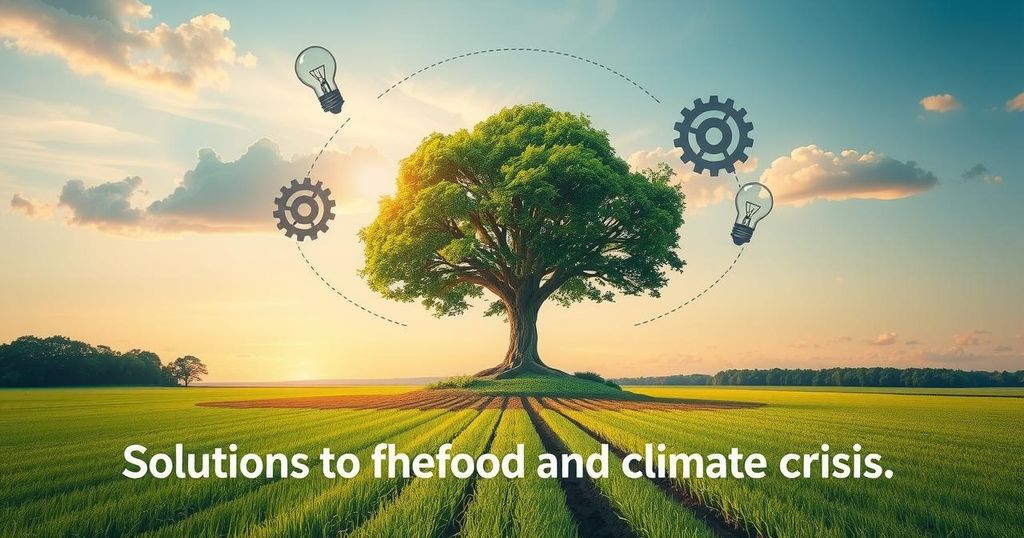Over 80 experts gathered at the Commonwealth Secretariat in London to address the intersection of food security and climate finance amidst global spending cuts. The event, hosted with Nigeria’s Federal Ministry of Innovation, Science and Technology, emphasized the urgent need for coordinated efforts and innovative solutions to tackle agricultural challenges while improving access to climate finance. Key discussions revolved around integrating digitalization, effective data sharing, and enhancing agricultural practices to ensure food security.
The Commonwealth Secretariat and Nigeria convened over 80 experts and partners in London to address the challenges at the nexus of food security and climate finance, amidst rising global development spending cuts. The Roundtable on Climate Finance and Food Security was orchestrated by the Commonwealth Secretariat in collaboration with the Nigerian Federal Ministry of Innovation, Science, and Technology.
Commonwealth Secretary-General, the Rt. Hon Patricia Scotland KC, provided opening remarks in a pre-recorded video. She acknowledged the urgency of the situation, stating that inadequate climate finance hinders vulnerable nations’ abilities to secure sufficient and nutritious food. She emphasized that the current financing structures are insufficient to address the escalating climate challenges.
Chief Uche Geoffrey Nnaji, Nigeria’s Minister of Innovation, Science and Technology, highlighted the essential role of agriculture in Nigeria, which constitutes 25% of the nation’s GDP and employs 70% of the workforce. Despite Nigeria being a leading cassava producer, agricultural challenges such as deforestation and desertification threaten food security and economic progress.
Expert discussions underscored that agriculture alone does not ensure food security, as crop nutrition must also be prioritized. The rise in tobacco farming in East Africa exemplifies that merely cultivating land does not guarantee food availability. The intricate relationship between climate change, land, health, and nutrition requires urgent attention and innovative solutions.
Breakout sessions focused on integrating climate-smart agriculture with global financial resources. Participants discussed the complexity of carbon markets, with one delegate emphasizing the importance of building trust through good practices in sustainability. Others proposed innovative labeling of soil quality to encourage more responsible agricultural production.
Challenges in navigating policy frameworks were discussed, particularly emphasizing the need for coordinated cross-departmental efforts to enhance food security and streamline access to climate finance. Digitalization was recognized as a vital tool for scaling climate-smart approaches, contingent on effective capacity building for data coordination and exchange among nations.
Outcomes from the roundtable advocate for holistic national food systems approaches that address continental issues, such as inadequate infrastructure and technology. Key topics included the necessity for improved soil and water management, enhanced production systems, and efficient data collection on weather patterns and harvest losses. Discussion also covered the critical areas of market access, clean cooking initiatives, and equitable climate financing strategies addressing gender responsiveness.
The recent Roundtable hosted by the Commonwealth Secretariat and Nigeria underscores the urgent need to intertwine food security and climate finance. Leaders highlighted the critical role of agriculture in economic growth while acknowledging significant challenges. Holistic and collaborative strategies are necessary to foster sustainable solutions and ensure food security in the face of climate change. The outcomes aim to inform future policies and initiatives that engage multiple stakeholders toward a resilient future.
Original Source: thecommonwealth.org




